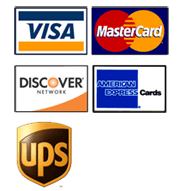Commodity Trading: How to Start Commodity Trading?
You can also invest in commodities using hedging by taking delivery of the underlying commodity. You can invest in commodities across the spectrum and these include precious metals, oil & natural gas, industrial metals, and agricultural commodities. A CFD is a derivative instrument and contract between you and your brokerage firm. You participate in the commodities market, but you do not have to buy shares, stocks, futures, or options. Profits arise based on picking the correct direction that a commodity price takes over the short-term. Your broker will define how prices are fixed at the end of a contract.
- Paper trading with a demo account doesn’t cost a cent, and it teaches you valuable trading skills.
- Futures traders don’t actually take delivery of millions of barrels of oil or herds of live cattle—futures are all about betting on price changes only.
- Your IP address is used to identify you and your shopping cart and to gather broad demographic information.
- You now have a basic understanding of the global commodities market, the types of commodities that are traded and the exchanges that are at the core of the commodity market.
- To start trading within the commodity market, you first need to decide whether you would like to spread bet or trade CFDs.
In conclusion, conducting due diligence on suppliers is crucial to avoid getting scammed or conducting business with illegitimate suppliers. Damien’s experience with the UK supplier taught him the importance of conducting due diligence and verifying suppliers’ legitimacy before doing business with them. By following these guidelines, one can ensure that they are working with reliable suppliers who can deliver quality products on time. After finding the two suppliers willing to ship their products to China, Damien knew he had to conduct some due diligence on them before sending a large sum of money. He started with the UK supplier and took a plane ticket from Geneva to London to visit the recycling yard.
The majority of exchanges carry a few different commodities, although some specialize in a single group. In the U.S., there is the Chicago Mercantile Exchange (CME), the New York Mercantile Exchange (NYMEX), and the Intercontinental Exchange (ICE) in Atlanta, Georgia. As its name implies, the London Metal Exchange only deals with metals.
Trading Commodity-Related Stocks
Damien’s financial plan for his commodity training company was simple. The Chinese client had to pay 30% prepayment, and Damien had to pay 100% against the document from the UK supplier. In Switzerland, he needed 20,000 CHF to set up a limited company, and he had no money. Therefore, he had to find someone to lend him those 20,000 CHF so he could set up the company to do the deal. At the time, Damien was working in a commodity trading house in Switzerland and was slowly transitioning from an operator role to a trading role. He was starting to find suppliers, customers, and closing deals, which he loved.
Prices don’t just depend on how much oil is being pumped out of the ground, for example. As it’s a global fuel source, when the world economy is expanding and factories are working flat out, it stands to reason that world consumption of a commodity such as oil will go up. Commodity trading is as old as the financial markets, and perhaps even older than that. The first example of an organised exchange for trading commodities dates back to Amsterdam in 1530. These days there are a whole host of markets available to trade with just a few clicks of a mouse or taps on your mobile device, but some commodities remain as popular as ever.
- Even then, investors will pay high markups over spot price on the retail market,” says Giannotto.
- The following brokers offer all commodity categories we’ve covered in this guide.
- Technology now enables trading via your desktop, smartphone or tablet and while on the go – as long as the exchange in your selected time zone is open for business.
- Despite his passion for commodity trading, Damien hated asking for time off from his full-time job.
- Please remember that any information that is disclosed in these areas becomes public information and you should exercise caution when deciding to disclose your personal information.
- Instead of finding a partner to share the risk and come up with the capital, he took all the liabilities on his name.
Manufacturers and service providers that rely on commodities for their production process may take a position in the commodities markets as a way of reducing their risk of financial loss due to a change in price. Fast forward to the present day, and there are now roughly 50 of these commodity exchanges spread across the globe that facilitate the trading of futures contracts and options for a long list commodities. One way to get a feel for commodity markets is to watch their moves over a period of time so you can experience the sort of things that happen and understand what makes prices change. And when you do start trading, it’s always sensible to start with small amounts and use risk management orders. It would be naïve to believe that it is simple to trade commodities.
These sorts of stock investments follow the price of the underlying commodity. If oil prices go up, an oil company should be more profitable so its share price would go up, too. The prices of commodities shift constantly as patterns of supply and demand change throughout the world economy.
Are commodities high risk?
If you lose money trading commodities, and your clients rely on your advice, you will be fighting an uphill battle to succeed and might want to look for another venture. For example, you might agree to a commodity future contract to buy 10,000 barrels of oil at $45 a barrel in 30 days. At the end of the contract, you don’t transfer the physical goods, but you close out your contract by taking an opposite position through the spot trading market. So in this example, when the futures contract reaches its expiration date, you would close out the position by entering another contract to sell 10,000 barrels of oil at the current market price. The most common way to trade commodities is to buy and sell contracts on a futures exchange. The way this works is you enter into an agreement with another investor based on the future price of a commodity.
Final Thought on Starting Your Own IB Firm
CFDs are complex instruments and come with a high risk of losing money rapidly due to leverage. Between 74%-89% of retail investor accounts lose money when trading CFDs. You should consider whether you can afford to take the high risk of losing your money. Day traders tend to do so online, frequently, and within shorter time frames. They avoid physical commitment to products and often speculate on daily price movements.
Click on the provided link to learn about the process for submitting a complaint on the ODR platform for resolving investor grievances. Marko has been working on the road for over 5 years, and is currently based in Europe. Alongside writing and editing, Marko works on projects related to online technology and digital marketing. For instance, a candlestick chart may be familiar to anyone who’s considered or shown interest in trading. Candlestick charts give insight into the highest and lowest price points of a particular time frame the asset of interest moved within. Over the years, many tools, indicators, and techniques were pioneered by professional and successful amateur traders alike.
What is Equity Delivery Trading? Safest Way to Invest Money?
Demat account functions like a bank account except that in this case, your holdings are the commodity futures or options position in the market. The demat account stores the information of your trades as well as the actual holdings of the instruments that you have invested in. There are also mutual funds, exchange traded funds (ETFs) and exchange traded notes (ETNs) that are based on commodities. The fund may buy futures contracts to track the price, or it might invest in the stock of different companies with commodity exposure. Still, it takes years to learn the trading business and the ins and outs of each commodity futures contract listed on U.S. exchanges.
How to trade commodities
These violent market swings are called volatility – a general measure of risk in any given marketplace. Clients would be allowed an option not to disclose any information to be collected, provided the same is in compliance best technical indicators for short term trading with regulatory requirements. Sharekhan Comtrade Private Limited is committed to protecting your privacy and utilising technology that gives you the most powerful, safe, online experience that you can get anywhere else.
These derivatives involve “Puts” and “Calls” for going short or long, along with a strike price and expiration date. Each Put or Call has a premium – or cost – which must be recovered before your profits begin to accrue. Your downside risk is limited to this premium, as long as you allow the option to expire. Some clients make their own trading choices, while others will rely solely on your advice. The more skilled you become at commodities trading, the more likely you will retain clients and grow your brokerage.
Financial data is critical because commodities are highly leveraged assets (borrowed money for funding). As such, there is always a chance that one can lose more money than initially invested. Therefore, become a full stack web developer a broker will require information on income, net worth, and creditworthiness to determine if they want to work with you. There are agtech start-ups and then there are fintech start-ups as well.
Speculators are sophisticated investors or traders who purchase assets for short periods of time and employ certain strategies as a way of profiting from changes in the asset’s key findings of the crypto trends in business and beyond report price. Speculative investors hope to profit from changes in the price of the futures contract. As a result, they may never take actual delivery of the commodity itself.


